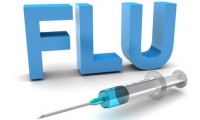-
Men with low testosterone less likely to have prostate cancer
- Source: medicalnewstoday
- 831
- November 7, 2017
-
New tissue-engineered blood vessel replacements one step closer to human trials
- Source: worldpharmanews
- 773
- November 7, 2017
-
‘Precision Medicine’ may not always be so precise
- Source: worldpharmanews
- 828
- November 6, 2017
-
Hormone replacement therapy may be beneficial for women’s memory
- Source: Medicalxpress
- 821
- November 3, 2017
-
Four-in-one flu shot may mean lifelong protection against the flu
- Source: Medicalxpress
- 1,042
- November 3, 2017
-
Wearable Devices–A New Look For The Modern Clinical Trial
- Source: clinicalleader
- 1,205
- November 2, 2017
-
Flu Vax May Improve Outcomes in Other Illnesses
- Source: medpagetoday
- 1,102
- November 2, 2017
-
Scientists pinpoint genetic risk factors for asthma, hay fever and eczema
- Source: Medicalxpress
- 743
- November 1, 2017
-
PTSD linked to changes in gut bacteria
- Source: medicalnewstoday
- 952
- October 31, 2017
your submission has already been received.
OK
Subscribe
Please enter a valid Email address!
Submit
The most relevant industry news & insight will be sent to you every two weeks.













